|
“I lost my password, please help.”
The message sat on my phone, glowing in the darkness, mocking the deep sleep it had just woke me from. And all I could do was laugh. A picture popped up in my mind of the Irish maid in Mary Poppins, “Dear, dear! I’ve lost me password! What’ll the Master say?!” Then, what does a password look like? If I’m going to find a lost password, I should know what it looks like. Perhaps, as it is a computer thing, it looks like Sultan, the footstool from Beauty and the Beast – a kind of ottoman with legs and a tassel tail running around in circles. I can imagine walking through the hospital, peering under gurneys and curtains, looking for a little wagging tassel. Perhaps it is more like the functions in Donald in Mathmagic Land small trains of letters and numbers that crawl around on the surfaces like a centipede. This would be harder to find as I imagine it to be silent and with the ability to blend into the shadows. Or perhaps it was lost like those socks that enter a space-time continuum inside the dryer. If that is where/how she lost her password there is no hope. At least I can never find that second sock once it disappears. Finally, I thought, maybe it’s like the lost pet with all those posters in the neighborhood with a photo and the desperate pleas of the owner sometimes with a reward offer. You never know how that turns out, the posters just eventually disintegrate. In the end, there was only one thing for me to do. Go to the big password-mill, despite all my misgivings about how the big operators run these massive for-profit enterprises where the passwords are emotionally and physically abused. At least I knew there would be a replacement password there.
0 Comments
Poetry Duel 14 featured returning guest poet Cheyenne Bramwell and her poem "Never Turn Around" on the left up against Sylvia Plath and her poem "Mad Girl's Love Song" on the right.
The result...the most votes for a Duel yet AND...by a margin of one vote, Cheyenne wins! Both poems were very well received both getting an average rating of better than 4.5, being the fourth and fifth highest rated poems in all of the Duels! Cheyenne Bramwell is an adrenaline junky, poet, and author who runs a daily poetry blog, and is in the process of a handful of fiction projects, including one that's been going for over a decade! She's new to sharing her work with the world, so if you'd like to let her know what you think of this poem, tweet her at @PoemsbyCheyenne! You can find her poetry blog at poemafterpoem.weebly.com, or on Facebook at www.facebook.com/poemsbyCheyenne. You can also support her on at patreon.com/poetrybyCheyenne and get a personalized poem! Never Turn Around When the darkness has eyes that glow and claws that catch, and feet that slide unseen through the night, When their howls and moans raise the hair on your arms and neck- that is when you run. Have swift steps towards the light, and don't let them smell the fear that is gnawing at your insides, or hear the scream of mindless terror that is tearing at your throat. They are deadly enough without any encouragement. But if they know of your doubts and your nightmares, then you will never be safe. Once they have tasted that small part of you, they will use it. It will fuel them and turn every single monster, to a never-ending hoard. No matter where you go, they will find you. Everywhere you look, you will find their eyes and deep-throated whispers. Once you've met their eyes, they will never leave you. So whatever you do- even if their footsteps are charging towards you- even if their fetid breath is searing the back of your neck- if you can almost feel the grasp of their rotten hands on your skin- don't turn around. And never look into their eyes. ++++++++++ Mad Girl's Love Song I shut my eyes and all the world drops dead; I lift my lids and all is born again. (I think I made you up inside my head.) The stars go waltzing out in blue and red, And arbitrary blackness gallops in: I shut my eyes and all the world drops dead. I dreamed that you bewitched me into bed And sung me moon-struck, kissed me quite insane. (I think I made you up inside my head.) God topples from the sky, hell’s fires fade: Exit seraphim and Satan’s men: I shut my eyes and all the world drops dead. I fancied you’d return the way you said, But I grow old and I forget your name. (I think I made you up inside my head.) I should have loved a thunderbird instead; At least when spring comes they roar back again. I shut my eyes and all the world drops dead. (I think I made you up inside my head.) The Long Way Home was originally published as a serial novel with the title No World of Their Own in the magazine Astounding in 1955. It was printed in book form in 1978 with the return of some parts that had been edited out of the serial version by Tor.
The story revolves around a crew of four humans who had embarked on an experimental hyperspace-drive equipped spaceship for a one year mission. They find many planets and aliens in their journey and even add one alien to the crew - the feline-looking humanoid on the cover. However, upon their return they find that the premise of the drive was false and that 5000 years have passed since their departure. Most of the novel concentrates on the crew and the alien, Saris, and how they manage to unwind a cold war between Earth and its Centauri colonies (with aliens of their own) and the oppressive rule of a computer known as the Technon. There is a significant part of the story told from the alien perspective of Saris making it one of the first with that kind of plot line. It was written over half a century ago. Despite that it still has over 160 ratings on Goodreads. It does get poor marks, generally, for the characters; with the caveat that Anderson's characters usually have more depth. It does get high marks for premise and plot and the science, though not perfect, has a lot of elements that are still believable (or actual) in the current state. Overall it is a recommended hard science fiction read from the "classic" era. It can be snatched up on Biblio for as little as $3.97 including shipping. Duel 13 was yet another tie and again, a complete tie. Both poems got the same number of votes and both had a 3.50 rating.
On the left was famous "beat" poem Allen Ginsberg and his "The Terms in Which I Think of Reality". Ginsberg rose to fame in the 1950s as the pre-eminent "beat" poet and was an icon through the turbulent '60s and '70s. On the left was Justin Bienvenue's "Brutal Mentality" from his self-published Like a Box of Chocolate. Justin's poetry definitely takes a different tack than a lot of the other "unknown" poets featured here but I like it and it has a certain dark optimism. The Terms in Which I Think of Reality Reality is a question of realizing how real the world is already. Time is Eternity, ultimate and immovable; everyone's an angel. It's Heaven's mystery of changing perfection : absolute Eternity changes! Cars are always going down the street, lamps go off and on. It's a great flat plain; we can see everything on top of a table. Clams open on the table, lambs are eaten by worms on the plain. The motion of change is beautiful, as well as form called in and out of being. Next : to distinguish process in its particularity with an eye to the initiation of gratifying new changes desired in the real world. Here we're overwhelmed with such unpleasant detail we dream again of Heaven. For the world is a mountain of shit : if it's going to be moved at all, it's got to be taken by handfuls. Man lives like the unhappy whore on River Street who in her Eternity gets only a couple of bucks and a lot of snide remarks in return for seeking physical love the best way she knows how, never really heard of a glad job or joyous marriage or a difference in the heart : or thinks it isn't for her, which is her worst misery. +++++++++++++++ Brutal Mentality To be considerate of others Is for the way of the wise There’s more fighters than lovers Leaving us with blackened eyes They give without taking Ask without permission Their actions they are faking Yet there’s no lining of suspicion If only the brain burned Upon thinking too much Maybe then they’d be concerned Of others feelings and such But they don’t and it’s a joke Only thinking of themselves The mind is but a broken yolk Your like dust on a shelf Collected and forgotten Looked upon from time to time It’s as if your aura is rotten It’s as if you’ve committed a crime But they are in the wrong Needing a check back into reality Perhaps their intentions all along Pushing us with brutal mentality There’s a party going on And everyone’s having a good time And if you haven’t done so already Lick the walls they taste like strawberries But the room is really concrete white There’s actually rats crawling out of holes Only one person is in the room Licking the walls will lead to lead poisoning Pawn of Prophecy is the first of a ten-volume epic fantasy first published in 1982. The set is broken into two five-volume groups The Belgariad and The Mallorean. It is high fantasy and quite literally designed around the concept of a Game of Destiny.
It does have many concepts of classic fantasy - a protagonist who does not know his destiny, swords, shapechangers, magic, gods, prophecy, and destiny. It does have multi-faceted characters as well like Kheldar who presents as a merchant but who is a spy, a prince, and a thief all wrapped into one. Eddings paints a rich world with political intrigue, religion, and interaction between gods, humans, and magic. It lacks the language that Tolkien provides to his trilogy - no elvish or orcish - but in other aspects the world is perhaps even fuller. Pawn of Prophecy is the coming of age story of Garion and introduces the full pantheon, including the evil antithesis Torak, and the varied "fellowship" that will carry through, with additions and subtractions, the next nine volumes in the battle between good (who sometimes have rifts to overcome) and evil. David Eddings did have Tolkien in mind when he wrote the series; he was consciously trying to add elements to the classic epic fantasy of Tolkien. One sees this in the world of Aloria. One sees this in the story of Torak. And one sees it in the interplay of the characters and the religions. This book has over 77,000 ratings on Goodreads with an average of 4.16. The other books of the series are also highly rated, all between 4.1 and 4.2. It is available on Biblio for as little as $3.94 including shipping. Joanie stood in her narrow kitchen and looked down at Bruno in all his well-brushed glory. The collie returned her gaze with his liquid brown eyes just dripping the unconditional love that dogs can have for their humans. That look always warmed Joanie’s heart.
You’ll never discount my feelings, my career, or my interests, will you? She thought as she reached down to rub his muzzle. You’ll never tell me I could lose a few, or be more adventurous, or get a boob job either, eh? The dog moved his head slightly so that she was scratching his ears and then she swept her hand down to pet his shoulders. His tail began to swish and his eyes, if it was possible, said even more vehemently, I love you; you’re the best! His needs were simple, give me attention and affection and I will return the favor. She gave him a final pat, gave him a small piece of salmon jerky and left him chewing on it, content. In her small, neat bedroom she changed into a bright flowered dress for this evening’s date. She liked the dress as it matched her personality - modest (knee length, high neckline) yet showy (bright, twirly). She would be easy to find no matter how crowded the venue. Later, at the bar (why was it always a bar?), Scott was waiting. His white bow tie made him clearly identifiable. She hadn’t thought he’d actually wear it. The bar was noisy but somehow he’d managed to get them a table in the adjoining restaurant where the sound was muted and they could talk, not shout. He didn’t try to invade her space and his cobalt-blue eyes held hers as if he was trying to understand her words and feelings. Maybe, she thought, just maybe… The twelfth duel continues the series of close results. Both poems got the same number of votes but, in a change, the "established" poet's poem was rated higher. On the right was Maya Angelou's poem "My Younger Days" which gained an average rating of 4.5. On the left, finishing second, was my own poem "Overtaken" which was written for a 30 poems in 30 days competition.
My Younger Days When I was in my younger days, I weighed a few pounds less, I needn't hold my tummy in to wear a belted dress. But now that I am older, I've set my body free; There's the comfort of elastic Where once my waist would be. Inventor of those high-heeled shoes My feet have not forgiven; I have to wear a nine now, But used to wear a seven. And how about those pantyhose- They're sized by weight, you see, So how come when I put them on The crotch is at my knee? I need to wear these glasses As the print's been getting smaller; And it wasn't very long ago I know that I was taller. Though my hair has turned to gray and my skin no longer fits, On the inside, I'm the same old me, It's the outside's changed a bit. Overtaken Work! Deadlines! The mad rush to get the errands done Without much thought The eyes lose focus, the head spins All you want is the merry-go-round To stop. A single brown and white bird Sits on the branch outside the window A few brave buds dotting its length. The bird, a sparrow, bursts into song And a blast of sunlight Speckles its beak and wings. You listen And the argument in the cubicle Next door fades; the insistent Reminder on the computer is a little Less insistent and you notice The daffodils blooming by the walk For the first time Overtaken by spring. In honor of Blume's Day (or Blumesday), which, for those of you who don't know, is February 4 in honor of Judy Blume, I thought to Throwback to an arbitrary (by which I mean a list based on the books I read as a tween and remember as an adult) list of the top ten books for teens that might be deemed "classics".
In keeping with our honoree, Tales of a Fourth-Grade Nothing is still in print, still loved by uncountable kids and leads of to the rest of the "Fudge" series, introducing several memorable characters including Fudge himself and Sheila Tubman. The Newbery-winning Charlotte's Web is also a book I remember fondly, has been made into a movie and, most importantly, is a book my children read, on their own, and also loved. E.B. White wrote many other things but this is the work he is most remembered for. Mister God, This is Anna by Fynn is an inspirational and heart-warming tale. It tells of simple, unconditional love and trust and belief. A Cricket in Times Square is a complex story that includes some of the same themes but also touches on family and responsibility. George Selden mixes a bit of superstition has animals telling the story which is often quite appealing. Finally, rounding out my short list, is Beverly Cleary's The Mouse and the Motorcycle. Cleary is a master storyteller and anyone who can juxtapose a mouse and a motorcycle in a story for young boys has a winner. Of course there are many more books that could join the list but the fact that these come so easily to mind some 35-45 years after I first read them means that, for me anyway they fit the term of classic - works to be remembered and cherished from one generation to the next. Want to mention your particular favorite? Please leave a comment, let us know! Constantine Pleshakov's book is subtitled "The Epic Voyage to the Battle of Tsushima" and is truly a book of the 18,000+ nautical mile journey of the main Russian fleet under Admiral Rozhestvensky from the Baltic to its fateful meeting with Admiral Togo and the Japanese fleet.
Pleshakov concentrates on the personalities of Rozhestvensky and his subordinates as well as the top members of the Russian government. He hints that if the leaders in St. Petersburg had allowed Rozhestvensky to do what he wished the outcome may have been different. Far from the classical story of ships who left Russia piled high with coal and sailing urgently around the world to plunge unprepared into a hopeless battle, Pleshakov tells of long delays and lost opportunities, of bungled intelligence, and of political weakness and indecision. He also seems to share Rozhestvensky's view that the reinforcements he was forced to wait for actually weakened the squadron instead of strengthening it and that the level of talent in the upper naval officers of the Tsar's navy was minimal with very few competent leaders of rank captain or above. There is also a fair handling of the wide class distinctions and the resulting political unrest in Russia as a whole, in the navy in general, and the "last armada" particularly. Pleshakov discusses this discrepancy in each situation the fleet found itself in, from forming to its ultimate destruction and the aftermath for the survivors. In the end even Rozhestvensky comes off wanting. I found the book interesting and found it debunked, as noted above, some long-held misconceptions. It pays scant attention to the battle itself; if you want a battle history you do need to go elsewhere. It is a good stand-alone historical story; one needs no previous knowledge of the Russo-Japanese War, Tsushima, or the period to get the full impact of the book. It is also inexpensive. Copies are available on Biblio for as little as $3.97 including shipping. Poetry Duel 11 was again very close! On the left was Carl Sandburg's "Plaster" and on the right was my own "Real Boys". Both got the same number of votes but you, gentle voters, rated "Real Boys" at 4.75 and "Plaster" 4.5.
Very consistently the votes have been for the more recent poems so I am once again muddling things up and using a poem from a contemporary poet as the "published" or "established" poem. Drop by rate and vote! Greg Schroeder "Real Boys" There were boys leaning on the apple cart Real boys, with real straw hats Boys whose lips could touch yours If either of you dared But that, in the lamplight Would be too much like something real. Carl Sandburg "Plaster" 'I KNEW a real man once,' says Agatha in the splendor of a shagbark hickory tree. Did a man touch his lips to Agatha? Did a man hold her in his arms? Did a man only look at her and pass by? Agatha, far past forty in a splendor of remembrance, says, 'I knew a real man once.' |
AuthorMe as a critic (be careful! the harshness will be well concealed!) Archives
April 2024
Categories
All
|
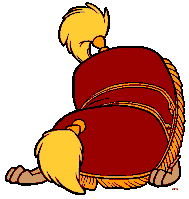
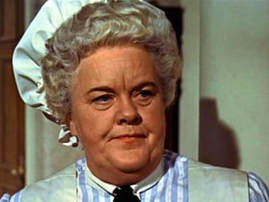



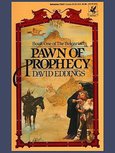



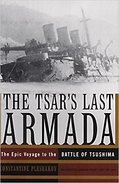
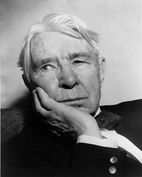

 RSS Feed
RSS Feed